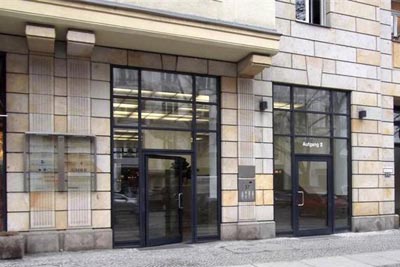Divorce Lawyer
Divorce Lawyer in Berlin
Are you facing divorce or separation? When dealing with separation or divorce and possibly a child together, the decision to go to a lawyer is stressful and challenging. Going to a family law attorney is often difficult, especially when it involves a family matter.
Emotionally and financially, the situation of life changes. As family law attorneys in Berlin, we are there for you professionally and consultatively during these difficult times. We take your situation seriously and address your personal needs and fears.
React to each separation phase professionally, thoughtfully, and focused manner. Even if emotions are overwhelming on one side, it makes sense to contact a family law attorney very early on. This way, you can keep any damage to a minimum in advance. If you can prevent an irrelevant dispute, you will save many stressful situations.
Do you have a concern about family law? Contact us today.
Divorce Lawyer – What is Our Role
Have you decided to end your marriage through a divorce? If living together is no longer possible, the only thing left is a divorce. In this case, there are two options. One is divorce by mutual request, and the other is by contested divorce. As the name suggests, the partners in the first variant agree to divorce. Since there is no argument about material goods and finances, this variant of divorce is faster, easier and cheaper. Often, however, some of the spouses oppose divorce.
Do you have questions about custody, maintenance, custody, or visitation rights? We will provide you with expert assistance in each of these areas. We also focus on issues such as asset division or property law, which we can help you with our years of experience, especially regarding children. A family law attorney takes care of every detail. Divorce becomes even more dramatic when children are involved. It is even more important to protect the interests of the children.
Solutions should always be worked out based on the client’s social skills and personal situation. In the case of divorce, the so-called side effects also occur, which include the following points among others:
- Division of the apartment
- Custody and visitation rights
- Child support
- Childcare and visitation
As family law attorneys in Athens, we will help you seek an amicable divorce and prevent unlawful requests by the opposing party.
Divorce Lawyer for a Non Consensual Divorce
Suppose your partner is evading a consensual divorce. In that case, the marriage protection process is very helpful if you want a separation on your own (without an outright divorce) or if your partner is violent. At the request of a spouse, the marriage protection court can take action and regulate the consequences of the separation.
In any case, you must be legally represented if you want to initiate such proceedings. The family law attorney will take care of every detail of your case. This ensures that your rights are protected.
Child support and alimony
As a general rule, both parents are responsible for the support of a joint child. In the event of separation, the non-custodial parent must pay child support for minor children. The court determines the amount of child support to be awarded.
As this is a sensitive matter, it is best to contact us directly if you have any questions. Our firm’s family law attorney also provides telephone consultations.
Child Custody
As long as a couple lives together and things are going well in the family, one takes a series of issues related to the children and their future for granted.
Suddenly, when one separates, what seemed taken for granted becomes a problem that needs to be urgently addressed. With whom will the children live? How often will the non-custodial spouse be able to see them? And if important decisions are to be made, whose responsibility are they?
In addition to these fundamental issues that one must always address, many others should be thought about before they happen to avoid constant arguments and quarrels: the children’s school, residence camps, travel abroad, vaccines and medical treatment, religion, investment of the children’s money, dangerous sports that one parent likes and not another.
How to proceed? Making the right decisions as parents take work, especially at a hectic time when it is difficult to reason. In such cases, it is helpful to consult a lawyer experienced in family law.
We will advise you on child custody and the right of access. These are important decisions that affect the children’s future, and informing them in an informed manner will help everyone to deal with the separation correctly.
Right of Access
The law stipulates that, after a separation, the parent with whom the child does not live still has the right and the duty to actively participate in the children’s life, accompanying them in their development over the years and promoting their good living.
The same applies to the child, who has the right to remain in contact with the parent.
The right of access thus guarantees that the child and parent can spend time together and that the parent is always informed about the child‘s health, well-being, and education, even in cases where the parent does not have an active role in the decisions that are made.
Allowing the other parent to be informed of the child’s physical and mental condition and development on an ongoing basis and maintaining family ties is crucial for the child’s proper growth.
Contact us for advice and answers on access rights and child custody issues after separation; we will be delighted to help you with this matter.
Get Expert Advice
+49 30 40561657
[email protected]
LSI Berlin Law Firm
Schlüterstrasse 37, 10629 Berlin
+49 (0)30 40561657
Monday-Friday: 09:00 – 18:00
Request an appointment and visit us in our office.

